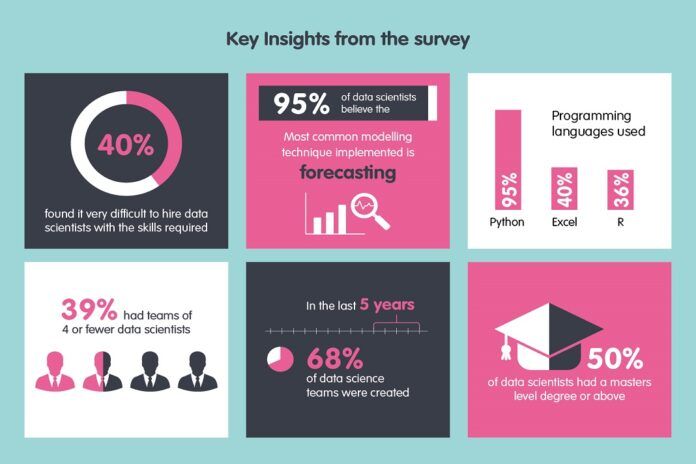
At least 40% of businesses in the energy sector found it difficult to hire data scientists with the skills needed to meet the challenges of a data-led future, according to the findings of a survey released by Energy Systems Catapult.
The results, released in the Data Science Skills in the Energy Sector: Survey Results report, found that 68% of data science teams within the energy sector were created within the last five years, while 39% of teams only had four members or fewer.
Feedback from the respondents indicates the relative immaturity of the adoption of data science within the energy industry in comparison to other sectors such as FinTech. This is despite an increasing need and demand for the technical skills and experience of data scientists to overcome the challenges faced by organisations in the pursuit of Net Zero, according to a statement.
Dr Stephen Haben, digital and data consultant at Energy Systems Catapult, said: “We expect that as the opportunities from the energy sector become more evident, there will be a rapid uptick in organisations trying to build their data capabilities. We have already witnessed the gradual occurrence of this over the last five years, and as this is ramped up, it will put further stress on recruitment and training.”
The survey found that while there is an evident demand for data scientists, domain knowledge and coding skills are two of the most prominent weaknesses and are hindering efforts to produce operational implementation of the algorithms data scientists develop.
The demand from the sector for defined skillsets was borne out in the survey results. Of the programming languages used, 95% of respondents used Python, while 40% used Excel. As expected, another in demand skill is energy forecasting, with 95% of data scientists polled identifying this as the most common modelling technique implemented within their teams.
However, the survey highlighted that a diverse set of additional skills were also desirable including natural language processing and data engineering capabilities.
Stephen added: “As digitalisation drives news opportunities for services and innovation, we need to ensure that we have a workforce that can respond. If we do not demonstrate the exciting challenges facing the industry or provide the necessary upskilling to the next generation of data scientists, then the energy industry risks losing out to other sectors such as social media and FinTech.”
In response to the findings, the report sets out four key recommendations for the energy sector: enable training for future data scientists, upskill existing employees and contractors, reskill data scientists to better respond to emerging technologies and to support the creation of data science/analytics teams.
